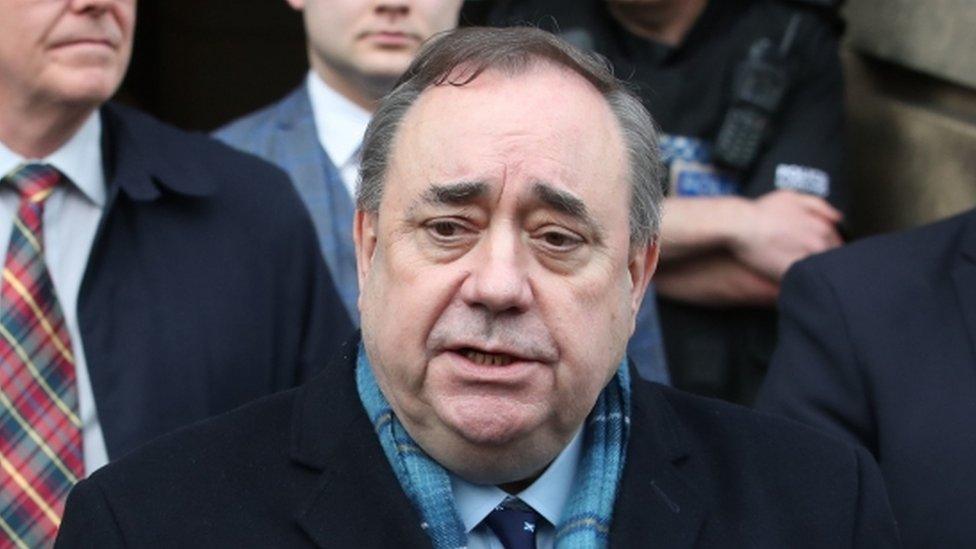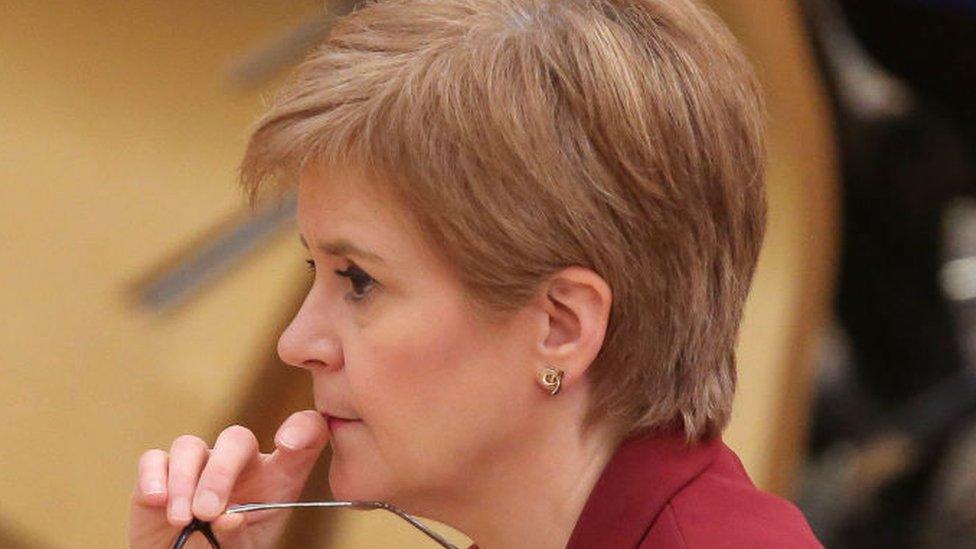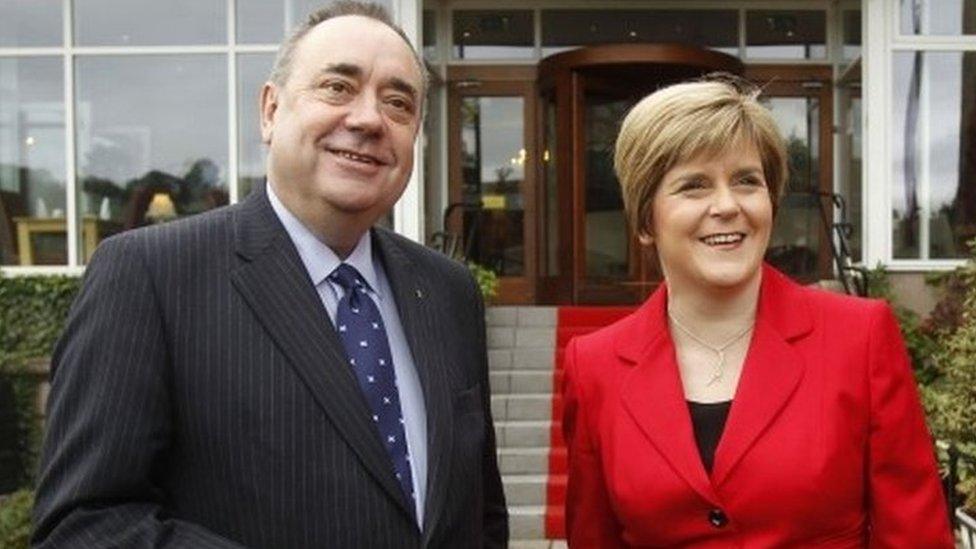Inquiry uses legal powers to seek Salmond evidence
- Published

The Holyrood inquiry into the handling of harassment claims against Alex Salmond is using legal powers to seek documents from the Crown Office.
The documents include messages between SNP officials, civil servants and advisers relating to Mr Salmond's legal challenge to the complaints process.
It is the first time MSPs have issued such a formal request in the history of the Scottish Parliament.
Convener Linda Fabiani said the action was necessary to continue its work.
The committee was established in the wake of a judicial review court case where the Scottish government admitted its internal investigation of two harassment complaints against Mr Salmond had been unlawful.
The government had to pay out more than £500,000 in legal expenses to the former first minister, who was later acquitted of 13 charges of sexual assault in a separate criminal trial.
The notice, formally issued by Holyrood chief executive David McGill, states that the Crown Office and Procurator Fiscal Service (COPFS) "may hold documents relevant and necessary for the committee to fulfil its remit".
Action 'not taken lightly'
The committee is seeking the release of documents detailing text or WhatsApp communications between SNP chief operating officer Susan Ruddick and Scottish government ministers, civil servants or special advisers between August 2018 and January 2019, that may be relevant to the inquiry.
It also wants to see any documents linked to the leaking of complaints to the Daily Record newspaper in August 2018.
Ms Fabiani said: "Throughout this inquiry, the committee has been determined to get as much information as possible to inform its task.
"This is a step that hasn't been taken lightly, and is a first for this Parliament, but which the committee felt was needed as it continues its vital work."
The Crown Office has been given until 17:00 on 29 January to respond to the notice.


Never before in Holyrood's history has it attempted to use this legal power of compulsion.
Section 23 of the Scotland Act , externalmakes it possible to force a witness to give evidence in person or - as in this case - to hand over documents.
It sounds straightforward but lots of legal terms and conditions apply.
That's especially true in this case where MSPs are trying to compel the Crown Office - in charge of prosecutions and headed up by the Lord Advocate.
The Lord Advocate has potential get-outs if he considers releasing documents would "prejudice criminal proceedings" or otherwise be "contrary to the public interest".
That public interest test could be key.
Clearly, MSPs think social media messages and other material held by the Crown Office could be relevant to their inquiry and should be released.
The Crown Office has argued that disclosing evidence gathered in a criminal case for other purposes risks undermining confidence in the police and prosecutors.
The Lord Advocate has a big call to make - has the prosecution service (which he runs) or the parliament (to which he is answerable as a minister) got the better sense of where - on balance - the public interest lies?

In other developments, Mr Salmond has been given a deadline by which to appear before the committee.
The former SNP leader has been given the option of giving evidence to the committee either in person in the Parliament or by appearing remotely on a number of dates in the first week of February.
Ms Fabiani said if this was not possible then the "committee regrets that it will not be able to take oral evidence from you" although he would be free to submit further written evidence.
Mr Salmond's lawyers had said he was only available in the second week of February.
In a letter to the committee, the former first minister said this was because he had still to complete two further submissions but the process had been "hampered" by the Scottish government's "failure" to release its legal advice and the ongoing bid to recover documents from the Crown Office.
'Unprecedented' access
Mr Salmond's appearance is much anticipated following his written submission earlier this month in which he alleged that Nicola Sturgeon misled parliament.
Ms Sturgeon, who "entirely rejects" his claims, is expected to give evidence in the coming weeks and has said she is looking forward to putting her side across.
Meanwhile, the committee has once again written to the Scottish government urging it to waive legal privilege and release the advice it received from lawyers regarding the case.
A Crown Office spokesman said: "COPFS has received the correspondence from the committee and will respond in early course."
A Scottish government spokeswoman said: "We will consider the committee's letter - but the Scottish government has already taken unprecedented steps to provide the committee with access to relevant information to allow it to fulfil its remit.
"The government has, exceptionally, provided the committee with access to a summary of the legal advice on the judicial review on a confidential basis."
- Published25 February 2021

- Published11 January 2021

- Published8 January 2021
